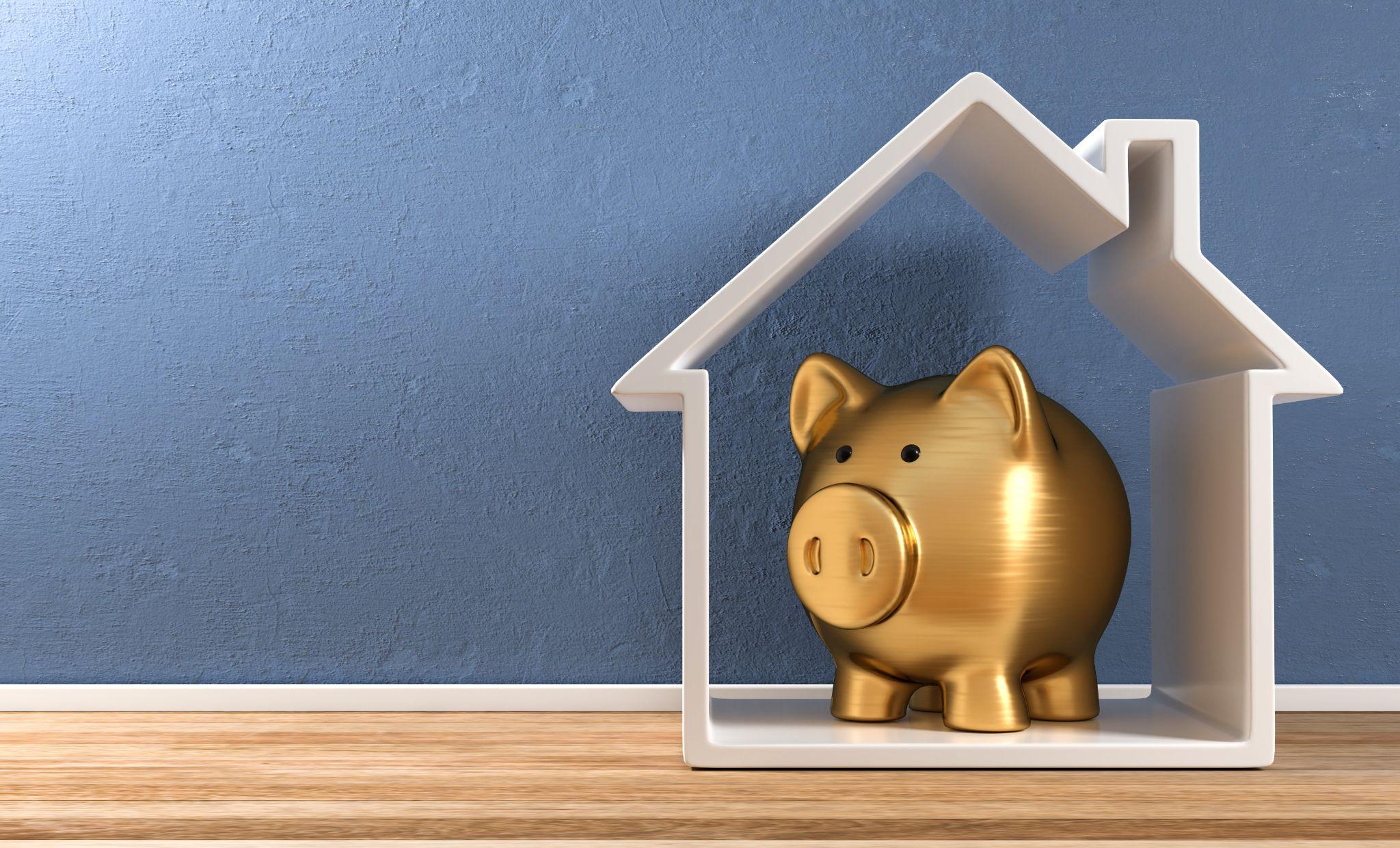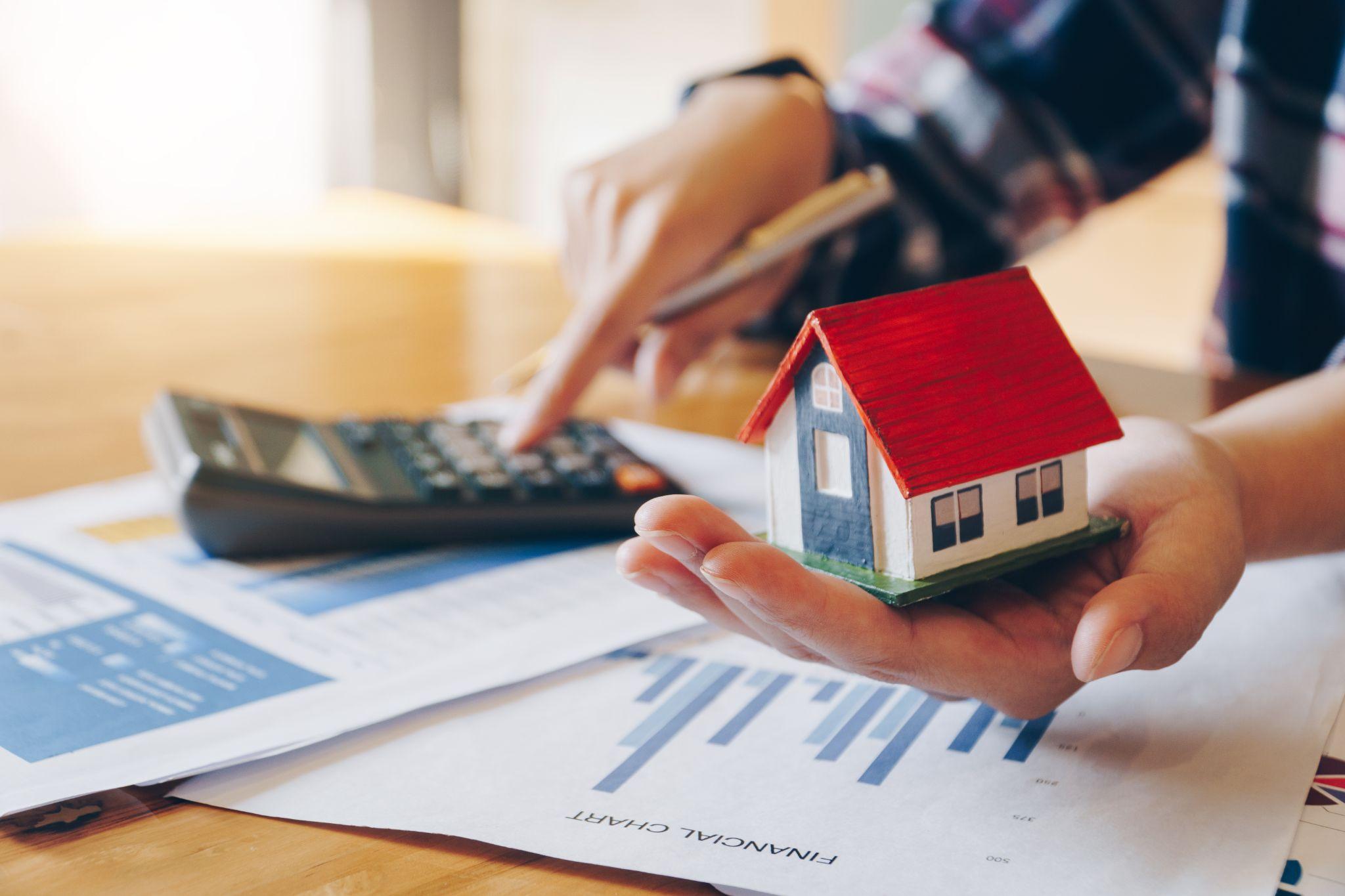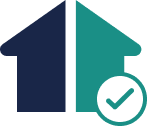Yes, you can sell a house with a mortgage. When you sell, the proceeds from the sale are used to pay off your remaining mortgage balance, and any leftover funds go to you. Selling a home with an active mortgage is very common, and most buyers and sellers navigate it with ease.
While the process is straightforward, it’s important to understand the steps involved and how your mortgage affects the sale. With proper planning, you can move to your next home without waiting for your loan to be fully paid off.
How to Sell a House With a Mortgage
Step 1: Determine Loan Balance
First things first, it’s important to know how much you owe your mortgage lender, otherwise referred to as your mortgage payoff amount. This is one of the primary factors that will dictate the listing price of your current home and your budget for the next. The key to staying financially afloat, in the “green” so to speak, is to maintain a balanced equity, i.e. don’t plan to purchase a home with a larger mortgage than what you currently owe.
At this stage:
Make sure you’re up to date with all your mortgage payments.
Once you know your loan balance (which has accumulated interest from when you initially received the loan), you can plan on using the money from the home sale to pay off your mortgage if your house is worth more than what you owe the bank.
Check your loan paperwork for due-on-sale clauses.
Due-on-sale clauses are stipulations that help protect your mortgage lender by essentially requiring you to pay your loan in full after selling your house or transferring the deed. If this is the case, there are several options to sell your house with a mortgage. Depending on the loan balance, we’ll be able to pay off the loan in escrow.
Check for prepayment penalties.
If you sell your house first without paying off your mortgage, there might be a prepayment penalty. Nowadays, these penalties are less common and some only cover a specific time frame (like if you sell within four years of buying). The cost of this penalty varies and can be a fixed rate, a percentage of your remaining loan balance or a percentage of owed interest. Again, there are options to sell and get around prepayment penalties.
Note: You only need to inform your mortgage lender that you intend to sell your home when you’ve accepted an actual offer on the property. Your lender will have little to no say on who you sell your house to—they are only entitled to ask for proof of funds or preapproval. As long as your buyer gets preapproved for a mortgage loan, everything should transfer without hassle.
Step 2: Find Out How Much Equity You Have
Determine how much equity you have in your current home by subtracting your outstanding mortgage balance from the current market value of your home. This will help you understand how much money you can put toward your next home.

Step 3: Work With Agents to Configure an Estimated Settlement Statement
After figuring out your remaining loan balance:
- Find a real estate agent: They will put your house on the market at a price that will ideally cover your home loan. They’ll also open an escrow account for you—a place to keep money and documents to make the sale official. You should also have a title agent to help transfer your house’s title. Inform your title agent of the amount you still owe your lender and your account number.
- Determine closing costs: Once the real estate agent opens the escrow account, they’ll be able to take a look at it and give you an estimate of the closing costs. Though this can change depending on what the house sells for and the timing of the sale, this estimated settlement statement will give you a better idea of how much money you’ll get to pocket for future investments.
Step 4: After the Sale, Pay Your Lender
After signing all the necessary paperwork for the deal’s closing, the title agent can send off your final mortgage payment and legally transfer the title to its new owners (who make their first payment to this escrow account). Work with your lender to ensure all necessary steps are completed and confirm the mortgage is fully paid off.
Step 5: Consider Investing Any Remaining Funds in Your Next Home
After paying off your mortgage, consider using any remaining funds as a down payment for your next home. Putting more money down up front can shrink your monthly mortgage payment amount, reducing the total interest paid over the life of the loan, and potentially help you avoid private mortgage insurance (PMI). Investing in your new home increases your equity from the start and can provide financial stability and peace of mind.
Possible Setbacks
Selling your house with an existing mortgage can present several challenges:
- Owing more than your house is worth (negative equity): In some cases (fewer than 10%), selling your house won't cover your mortgage. Options include refinancing, paying the lender in cash at closing if you can afford it, or holding off on selling to gradually pay your debt.
- Navigating short sales or refinancing options: If you do owe more than the home is worth, you can request a short sale where the lender agrees to lower the amount. Often done to avoid foreclosure, these usually price the house below market value and may require all-cash payment.
- Managing the timing of selling and buying another home: Ideally, you should sell your house first and use the profits to pay off your mortgage, cover commissions, fees, and closing costs, and leave some money for savings or your new house.
Selling Mindfully With a Mortgage
Remember, you’re responsible for your mortgage until the sale officially closes. Your settlement statement, otherwise known as the closing statement, will have an itemized list of expenses, detailing who pays for what and your net profits.
Review this settlement statement carefully to see how your mortgage is being handled, especially whether payments are being paid as they usually would or if they’ll be accounted for at the closing table.

Frequently Asked Questions
How do I sell a house if I still have a mortgage?
You can sell your house even if you still have a mortgage. When the house is sold, the proceeds from the sale will first be used to pay off the remaining balance on your mortgage, and any remaining funds after that will go to you.
Is it harder to sell a house with a mortgage?
Selling a house with a mortgage is not more difficult than selling one without. The majority of homes sold still have mortgages, and the process is straightforward as long as the necessary steps, like obtaining a payoff amount from your lender, are followed.
Can I transfer my mortgage to another person?
In most cases, mortgages cannot be transferred to another person unless they are specifically assumable. You will need to check with your lender to determine if this option is available for your loan.
Do I need to tell my mortgage company I’m selling my house?
Yes, you must inform your mortgage company when you decide to sell your house. They will provide you with a payoff amount for the loan and guide you through the process to ensure a smooth transaction.
Simplify Your Home Sale With 800CashToday
Selling a home doesn’t have to be stressful or time-consuming. If you’re looking to sell quickly or avoid the hassles of the traditional home sale process, 800CashToday offers a fast and straightforward solution.
We buy homes in any condition, so you won’t need to worry about repairs, showings, or waiting for buyers to secure financing. Whether you’re relocating, downsizing, or simply ready for a fresh start, we make it easy to move on to your next adventure. Contact us at 1-800-CashToday now to get started!



